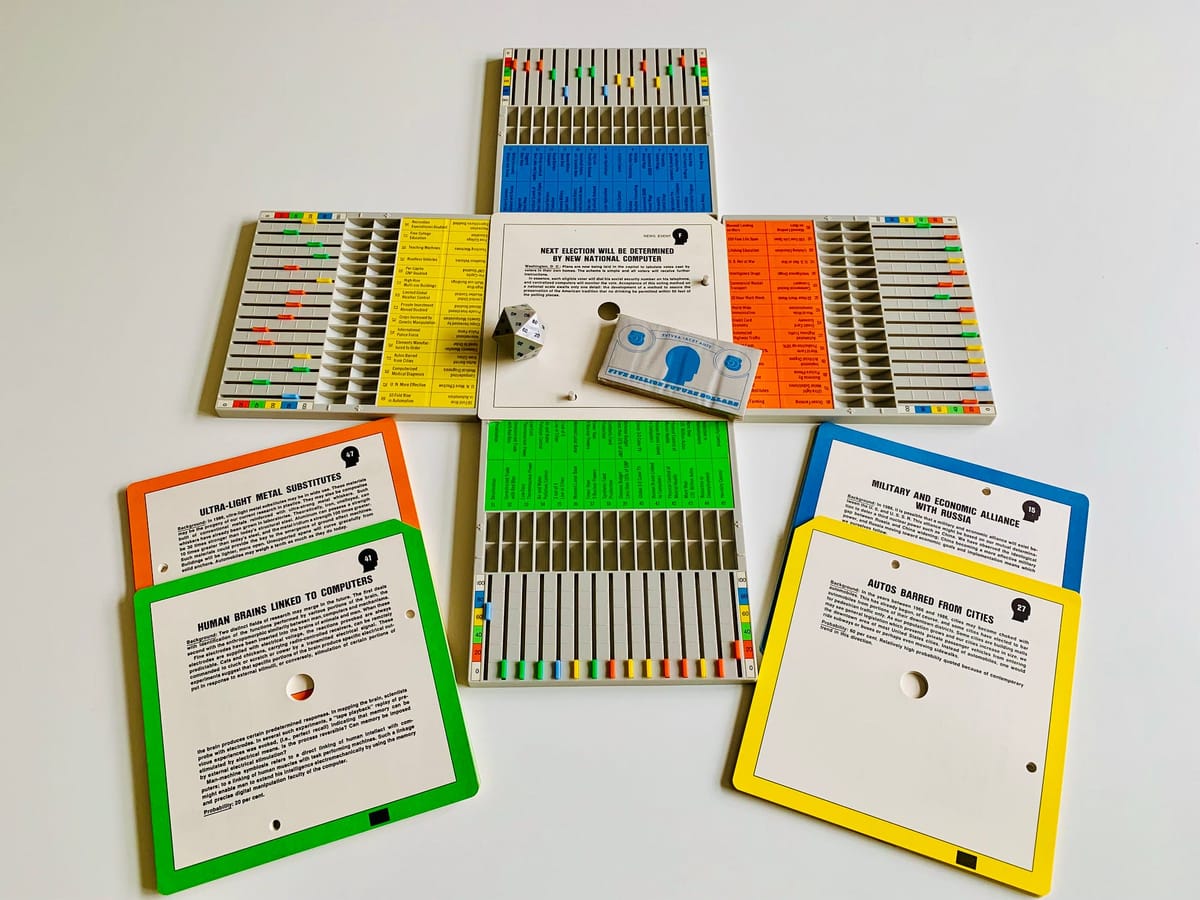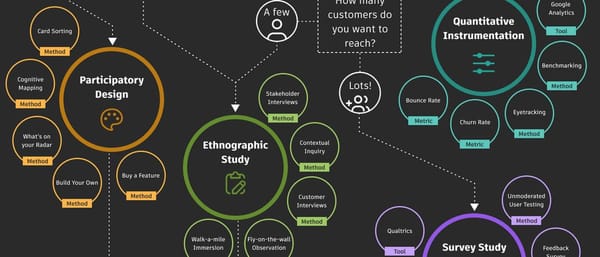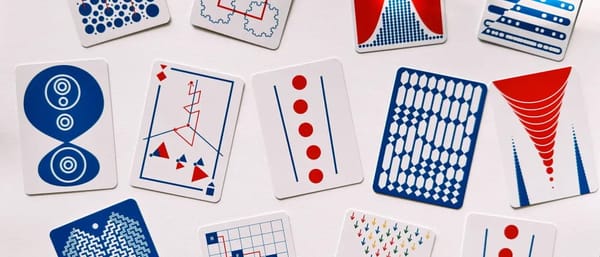№ 35 | A Forecasting Game from 1966, Polarization, LLM Visual Tree, A Bike Analogy for Self-Care, and a Model to Assess Change Models

A forecasting game… from the 1960s?
Here’s a fascinating look at the game of Future, “the first notable attempt to engage civilians in the mechanics and social interaction of future forecasting.” For whatever ill-informed and unexamined reasons, I was surprised (but shouldn’t have been) to discover a forecasting game published in 1966. Here's a wonderful trip through the history of this game and the circumstances surrounding it, with nods to a few other foresight methods developed during this time period.

I love the final paragraphs, with the emphasis on the goal of such games being the dialogue that it creates; this speaks in part to why I’m so passionate about “playful things to think with.”
Tools like games with cards and dice are a means to an end, a boundary object around which to converge our diverse expectations and understandings, enticing us to share our perspectives and fill gaps in knowledge — to link assumptions and unknowns. They are best used not to deliver an answer, but to spark collective understanding, and maybe, just maybe, generate a little imagination.
😍
Polarization is NOT the problem?
I’m between audiobooks (always fiction) which means… podcasts! And this one was…🤯. I was enthralled for the full 75 minutes, listening to social scientists and historians discuss polarization, or rather, how “polarization is not the problem… it obscures the problem.” Really interesting discourse and many new concepts to me—even sparking this bit of visual thinking, where I try to work out healthy and unhealthy kinds of conflict.
LLM visual tree
Here’s one to save for future reference:
An evolutionary tree of modern Large Language Models (LLMs) to trace the development of language models in recent years and highlights some of the most well-known models.

On Bikes, Horses, Mules, and Self-Care
More metaphors to frame our thinking: “No Shame in Self-Care: Reframe Your Life’s Journey with the Bike Analogy.” What is the essential provocation of the bike analogy? ‘Sometimes, you have to dismount your bike and fix it before continuing the journey.’ Good self-care tip. I won’t spoil the horse/mule analogy. 😉

Assessing change models using 6 sources of influence
Here’s a short article— “Assessing change models using 6 sources of influence”—looking at Kotter’s 8 step change model and Dan and Chip Heath’s Switch model through this simple visual:






